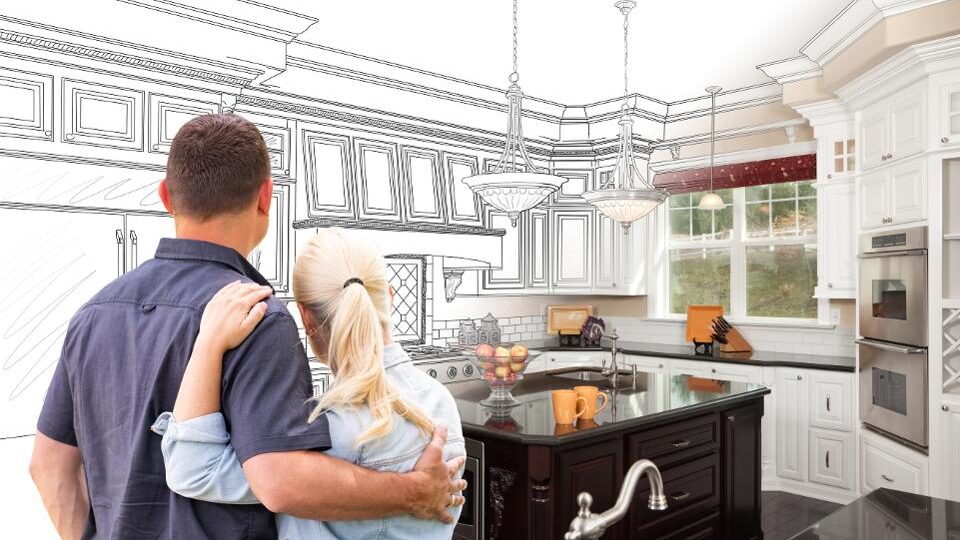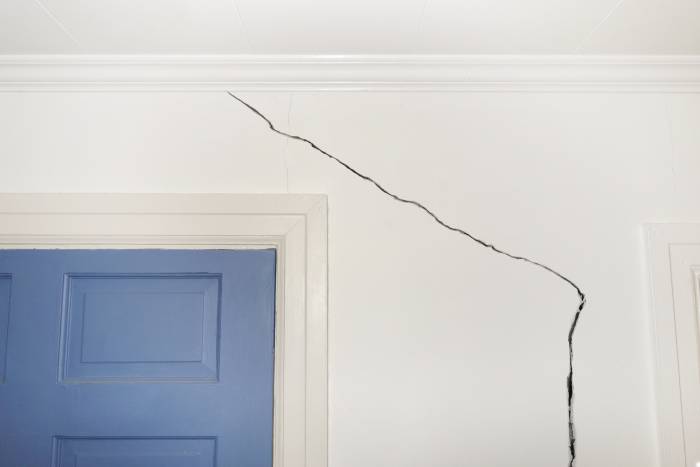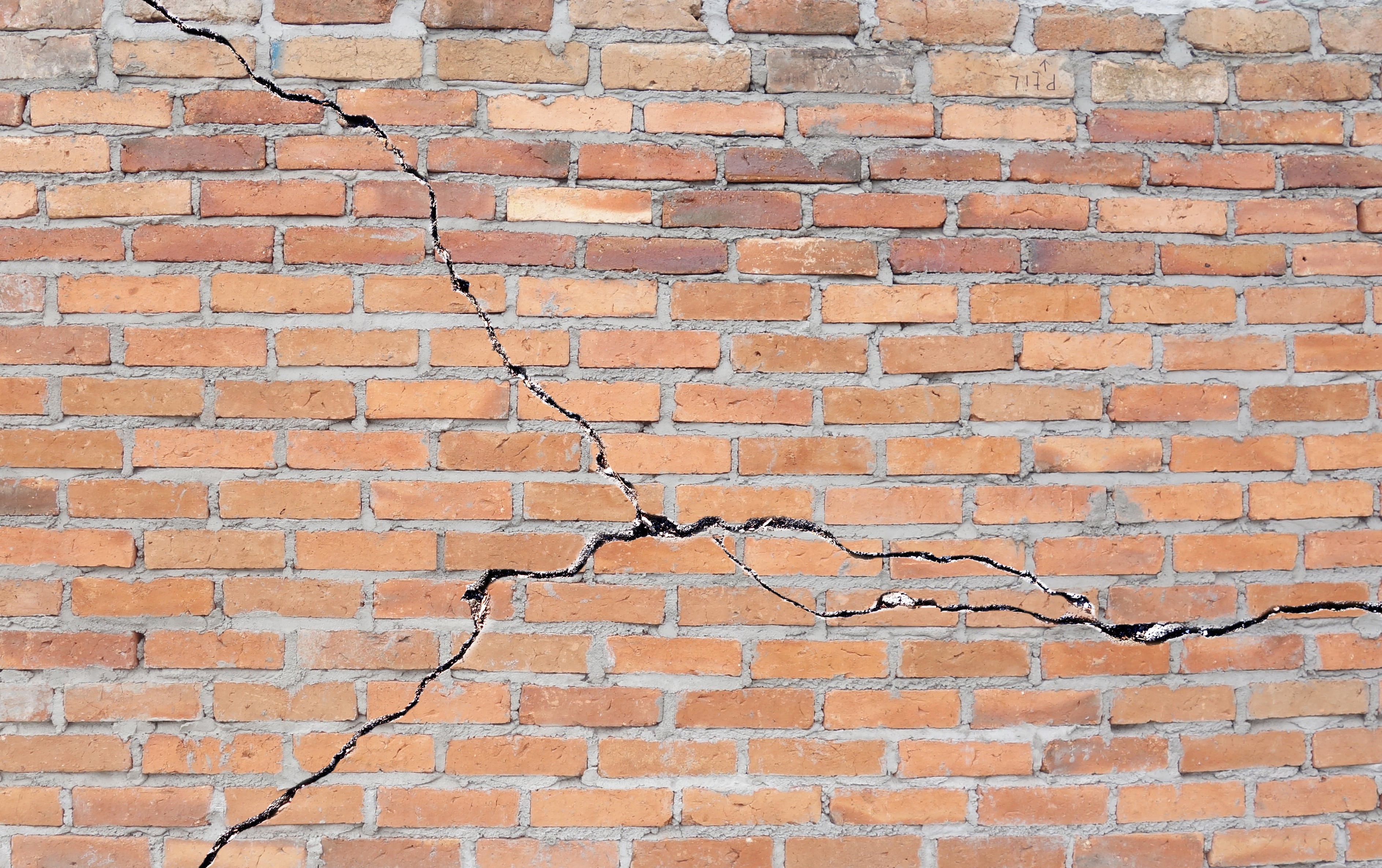
You all know that if you have insurance for a particular thing, you can get help from the insurance company for that object. Likewise, there is homeowners insurance that works as a backup help for making your home repaired.
Last month, I got insurance for my roof that got damaged accidentally. Now, there is a thing you must know: which things are going to be covered by your homeowner’s insurance.
If homeowner insurance covers structural problems, then what type of structural problems? So, from here, you may ask, “Does homeowners insurance cover structural problems during renovations?” However, you can read the article to learn about insurance policies and more.
Structural Damage To A Home: What Is It?
The architectural accuracy of the house is significantly impacted by structural damage, which frequently affects the foundation. It refers to severe issues and damages to the foundation, not just a few minor breaks in between. Without repair, structural issues will undoubtedly result in more significant, more expensive problems and could even destroy the home.

However, moves in the earth, wetness in the soil, faulty or inadequate initial construction, and exploitation of the ground are just a few of the many factors that can cause disaster in the framework of your home. Of course, it is not cheap to figure out the reason for the unstableness of your foundation, and it is also not reasonable to address the root cause of the problem in addition to the damage.
Do Structural Issues Get Covered By Home Insurance?
Housing protection is a common name for the portion of your homeowner’s insurance policy that exclusively covers the home’s structure. It distinguishes it from other coverage options in your homeowner’s insurance, like liability coverage or personal property protection.
Whether your house insurance coverage will pay for structural repairs depends in large part on the cause of the damage to your home. Two elements that insurance companies typically take into account are:
- What resulted in the structural damages?
- What sort of destruction took place?
According to the Insurance Information Institute (III), if your home is destroyed or damaged by a hurricane, fire, lightning, hail, or other disasters mentioned in your policy, your homeowner’s insurance covers to repair or rebuilding of your property. However, the following situations are excluded from house insurance coverage:
- Damage caused by an earthquake
- Routine deterioration
- Damage brought on by flooding
In other words, home insurance coverage does not always cover damage caused by natural disasters. Normal wear and tear are not regarded as an insured loss. Fortunately, there are several methods to add to your house insurance to acquire the extra protection you require.
Homeowners Insurance: What Does It Cover?
The following circumstances are those in which homeowners insurance may offer coverage for collapse:
- Unexpected Or Surprising Events
Let’s imagine that your home collapses due to your foundation deteriorating, and you subsequently learn that the cause was severe termite damage. Even while insects are not considered a covered risk under homeowners insurance, the collapse is probably covered if you, the homeowner, were entirely uninformed that you had a pest problem. The incident that would be covered is the collapse.
- Accidents
You are probably insured if you appoint a carpenter to work on your house and they knock off a wall that leads to your house collapsing. Although the handyman should have been able to identify structural walls, neither you nor anyone else was to blame for your home’s collapse.
- Weather-related Damage
Let’s imagine that an excessive amount of snow or ice buildup causes your roof to fall. As this is probably not something the homeowner would have predicted happening and could not have taken necessary preventive precautions, you will be accepted under your homeowner’s insurance.
Now, your home’s insurance will probably not cover you if your roof collapses due to your irresponsibility. Nevertheless, insurance providers are more sympathetic regarding more essential issues.
Moreover, some homeowners overstock their attics with storage, eventually collapsing the floor. The same is true of garages’ rooftop storage spaces.
However, the homeowner is responsible for taking reasonable precautions to maintain the integrity of your home’s construction, although insurance companies will be merciful if you make more innocent mistakes and will likely pay for the collapse.
What Is The Cost If Homeowners Insurance Does Not Cover Structural Problems?
You are responsible for covering any sum above the dwelling’s category limit after needing to pay your insurance under your homeowner’s policy. Your homeowner’s policy will specify the deductible amount and the coverage maximum. Discuss your insurance with your private insurance agent to determine the actual amount of coverage you have and the potential amount you must pay out of pocket.

There is always the option to compare policies to find one with a smaller deductible or to pay more to raise your coverage limit. When assessing your approach, keep in mind your particular requirements and concerns. Your agent can advise you on whether you need to increase your coverage.
What Kind Of House Improvements Could Raise The Price Of Homeowners Insurance?
Renovations may impact your home insurance in many ways. The cost of your policy may alter, and your home’s worth may rise due to upgrades, renovations, or additions, necessitating more coverage.
For instance, if you upgrade to a tile or metal roof, your premium can increase because of the higher replacement cost. Find out more below about how various home improvements may alter the price and coverages of your homeowner’s insurance.
- HVAC Devices
Generally speaking, your house insurance policy will not provide coverage if your Ventilation systems malfunctions due to regular wear and tear. But, your homeowner’s insurance may cover damages from a falling tree on your house or a fire.
It is best to notify your home insurance provider if you intend to significantly alter your HVAC system, such as installing new tubing. You may be eligible for a discount on home improvements. Except in cases where you are also replacing the type of HVAC system, you do not need to renew your home insurance.
- Basements And Attics
The main issues with basement and attic repairs include adding HVAC and electronic wiring and installing insulation. Like any significant remodeling, you should let your house insurer know so they can assess whether you need to change your dwelling coverage. To make the necessary corrections, they might need images and receipts.
- Swimming Pools And Hot Tubs
Homeowners’ insurance could pay for damaged swimming pools or hot tubs if an insured loss results in damage. The ‘Insurance Information Institute advises increasing your homeowner’s insurance coverage limits to $300,000 to $500,000 or more when building a new swimming pool. In an accident or disaster, different umbrella coverage may also offer protection.
- Replaced Decks
If a covered risk makes the replacement of the deck necessary, your homeowner’s insurance housing coverage might be able to pay for it. No matter why you want to replace your deck, contact your insurance provider about raising your housing limit after the work is done.
A deck can increase the value of your house, but if it is destroyed, it will cost more to rebuild. To assist your insurance in determining how much extra coverage you require, save all of your bills for materials and labor, note the types of materials used, and take lots of pictures.
- Landscaping
If trees or other landscaping are damaged by one of the listed catastrophes, your policy’s landscaping provision may assist in covering the cost of tree removal and replacement. Consult your insurer to learn what could be covered if you intend to change the land surrounding your house. Insurance providers could change the amount of your home’s residence coverage covered by landscaping.
Frequently Asked Questions
If you want to know more about “does homeowners insurance cover structural problems during renovations,” you can read this section:
Do Fractured Walls Go Under Homeowners Insurance?
Yes, your house insurance will typically cover cracks in both indoor and outdoor walls. As with the majority of insurance-related issues, everything depends on its cause.
What Damages The Structural Stability?
Any damage to your home’s base, roof, load-bearing walls, or other structural components that compromise its sustainability, safety, or integrity is considered structural damage. Your home may be in danger of collapsing if it has structural issues.
What Does Typical Homeowner Insurance Not Cover?
Damage caused by termites, insects, birds, rodents, rot, mold, and everyday wear and tear is not covered. Smoke or smog from commercial or industrial activity is likewise not covered for damage. These are typically excluded and are not covered if anything is poorly manufactured or has a hidden flaw.
Does Insurance cover Structural Collapse?
Standard homeowners insurance plans typically cover structure-related damage to your property. It covers your structure’s base, floors, roof, and more. In the case of unforeseen damage, your policy’s dwelling coverage will protect these buildings.
What Kind Of Harm To A House’s Structure Is Defined As Major?
Any damage that undermines or impacts your home’s integrity is called structural damage. It pertains to the roof, walls, foundation, and load-bearing walls.
When there is structural damage, the building may no longer be able to support itself. Your house can be in danger of collapsing.
Why Are Foundation Repairs Not Covered By Insurance?
Usually, home insurance will not pay for the harm caused by a homeowner’s carelessness. A homeowner is supposed to maintain their home regularly, including the foundation. The insurance carrier will probably reject the landowner’s complaint if it determines that the foundation damage was caused by poor maintenance.
Final Words
Eventually, it is a must to say that renovation is necessary when your house becomes damaged. But it is more important for everyone to tackle the cost. So, to get assistance, you must have homeowners insurance.
But then again, it is necessary to know, “does homeowners insurance cover structural problems during renovations?” However, homeowners insurance can cover structural problems only in some valid circumstances. You can read this article as many times as you want to learn about them clearly.
Mehedi Hasan is an insurance expert with over 6 years of experience in the industry. He has a deep understanding of various types of insurance policies and is skilled at helping clients find the coverage that best fits their needs. In his current role, Mehedi works as a consultant, advising businesses and individuals on the best insurance options for their specific situations.
He is also a frequent speaker at industry events, sharing his knowledge and expertise with colleagues and professionals in the field. Mehedi holds a degree in insurance and risk management and is committed to staying up-to-date on the latest industry trends and developments. In his free time, he enjoys reading, traveling, and spending time with his family.
